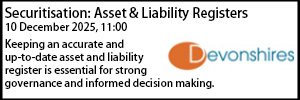Artificial Intelligence – a new dawn for social housing?
- Details
John Murray looks at the opportunities – and threats – raised by the use of artificial intelligence in the social housing sector.
Smart assistants, chatbots, voice and facial recognition - the rapid advancement and ever-expanding capability of artificial intelligence (AI) has never been more apparent or widely discussed.
As well as forming an ever increasing part of daily life, conversation is turning to the opportunities AI technology can offer to the social housing sector.
Opportunities
There is no shortage of commentary on the issues in the social housing sector that could potentially be mitigated by AI, or the efficiencies and cost savings that could be delivered:
- Smart Sensors for Remote Monitoring: Smart sensors can be installed in the key components of each property to harvest and analyse data and monitor factors such as temperature, humidity and boiler performance and predict maintenance needs, allowing for proactive rather than reactive maintenance and an early warning of issues such as mould.
- Preventative Maintenance: Even without smart sensors, machine learning AI systems can be used to analyse complex data sets including historical maintenance data, weather conditions, housing conditions and past maintenance records/historical maintenance issues to predict maintenance needs.
- Housing Allocation: While the asset management associated with the allocation of social housing has in the past typically been a paperwork-intensive and time consuming task for housing associations and local authorities, machine learning AI tools can be trained to analyse huge quantities of data, considering multiple complex factors, and score and rank applicants accordingly and find the most suitable properties for individuals, far reducing the time required to undertake manual methods of review and selection.
- Improved tenant engagement: Virtual AI assistants can offer a convenient way for tenants to raise issues and queries, providing 24/7 support when human support staff are unavailable. Intelligent virtual assistants can be used to answer frequently asked questions about, for example, tenancy agreements, maintenance and rent payments, quickly and efficiently freeing up staff time for more complex queries and problems.
Threats
While AI clearly has the potential to offer considerable benefits and advancements to the sector, providers of social housing should also be aware of the risks and pitfalls of this rapidly advancing technology.
One risk associated with the use of AI as part of, for example, tenant selection or screening processes is the risk of bias. Analysts have warned that AI can produced skewed results if the source data is not diverse enough or contains inherent bias, leading to the unfair treatment of certain groups of individuals and housing providers open to challenge. There are also concerns that that with organisations turning to AI to help decide how to and where to allocate resources, rather than human decision makers, there is a risk that the human ideas of ethics and morality which influence decisions and ensure that outcomes consider human cost and consequences, are lost.
Although not exclusive to the social housing sector, insurers also warn of “algorithmic risk” – the concern that if the algorithms underpinning AI technology fail to perform as expected, businesses can be exposed to a wide range of loss – such as property damage, business interruption and cyber exposure. As the insurance industry has only relatively recently begun to grapple with the risks posed by AI and develop coverage, insurance options are relatively limited.
In addition, AI systems generally collect and use huge amounts of personal data, creating concerns surrounding privacy and data protection. Housing providers intending to make use of AI will need to be careful to ensure that they do not fall foul of data protection legislation and regulation and that their policies and procedures are updated to reflect any new systems that are introduced.
John Murray is a Partner at Ward Hadaway.
Governance Lawyer
Regulatory/Litigation Lawyer
Legal Director - Government and Public Sector
Poll


















